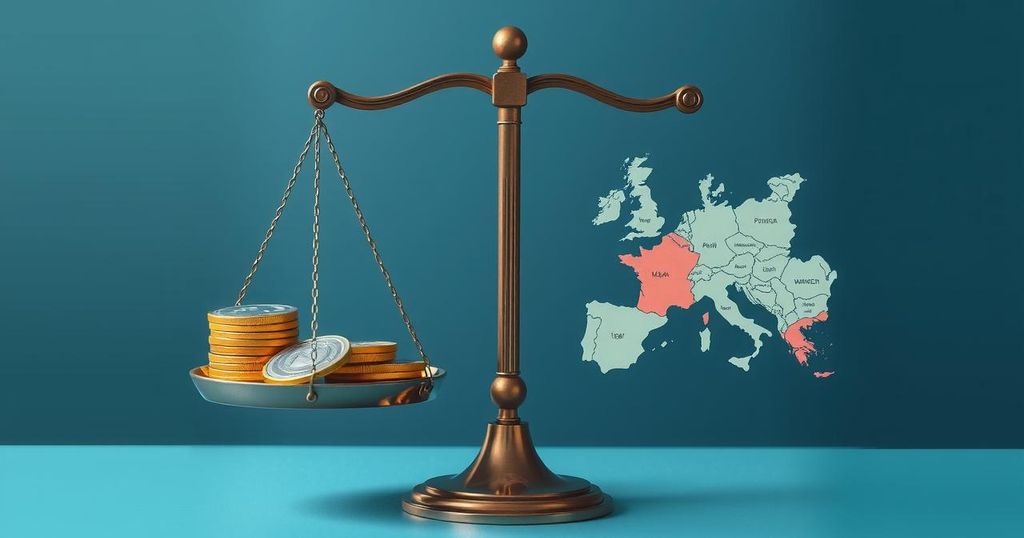South Africa’s Budget 2025: Enoch Godongwana Faces Political Turmoil
South Africa faces a political crisis over Finance Minister Enoch Godongwana’s proposed 2025 budget, following a month-long delay and divisions in the coalition government. The ANC’s failure to secure the Democratic Alliance’s support threatens the budget’s passage, leading to urgent discussions about economic policy reforms and tax increases that could impact low-income citizens.
South Africa is currently experiencing significant political turbulence as the government struggles to reach consensus on the newly proposed national budget. This situation, which arose after a month-long delay, has placed Finance Minister Enoch Godongwana in a challenging position due to disagreements within the coalition government regarding the budgetary policies. Analysts suggest that the divisions within the coalition reflect uncharted waters, and the future of the budget is uncertain without support from major political players.
The African National Congress (ANC), having lost its parliamentary majority in the previous election, now governs alongside nine coalition partners. The Democratic Alliance (DA), the ANC’s largest partner, has twice rejected Godongwana’s budget proposals. Without the DA’s backing, the success of the budget remains precarious, necessitating either policy adjustments or support from other significant opposition parties.
Godongwana postponed his initial budget presentation due to public opposition against a proposed value-added tax (VAT) increase, which was anticipated to exacerbate the cost-of-living crisis in South Africa. This postponement marked a historic first since the end of apartheid in 1994. Upon resuming, Godongwana introduced a revised budget, proposing a more gradual VAT increase to 16% over two years, hoping to accommodate his coalition partners.
He justified the tax increase as essential to address ongoing financial pressures in critical areas such as health and education. Godongwana emphasized a choice that coalition partners must confront: whether to close schools and hospitals or to reduce the workforce, presenting a stark dilemma for governance. Instead of increasing personal and corporate taxes, which he argued would stifle investment and growth, he focused on VAT as a means to enhance revenue.
Despite support from his party, the ANC, the budget remains contentious. The DA maintained its stance against any tax increases unless accompanied by substantial reforms aimed at stimulating economic growth and job creation within three years. The political landscape has also been complicated by conflicts over other significant issues, including land reform laws challenged by the DA in court.
Opposition parties, including the Economic Freedom Fighters (EFF) and Umkhonto weSizwe, have rejected the budget, contending that the proposed tax increases would disproportionately impact low-income citizens. The ANC is thus positioned precariously, needing at least one coalition partner’s support to pass the budget amid calls for substantial adjustments.
Experts have highlighted the critical role of parliament in navigating this deadlock, which could lead to an unprecedented rejection of the budget, threatening the stability of the coalition government. Analysts have criticized Godongwana for opting for a VAT increase, suggesting that a more equitable solution would involve a wealth tax targeting the affluent. Concerns have been raised regarding the credibility of Godongwana, once viewed as a steady finance minister, as his reputation hangs in the balance amid this budget crisis.
In conclusion, South Africa’s 2025 budget, presented by Finance Minister Enoch Godongwana, is embroiled in controversy due to deep divisions within the ruling coalition. The rejection by the DA and the backlash from various parties has put the budget’s future in jeopardy. As the coalition government grapples with crucial decisions, the upcoming parliamentary sessions will be pivotal for the survival of both the budget and the government itself.
Original Source: www.bbc.com




Post Comment